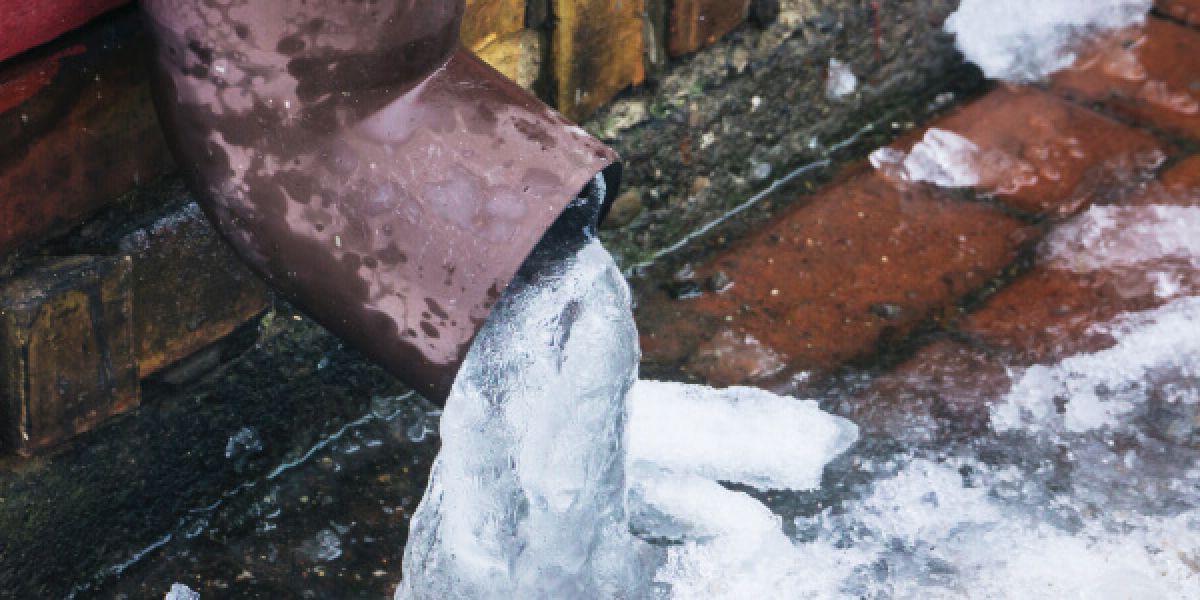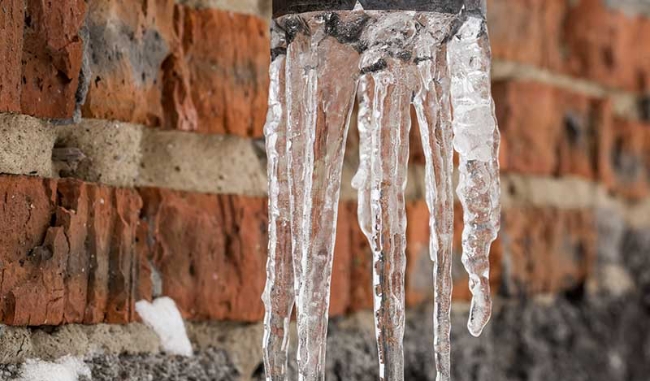Protecting Against Frozen Plumbing in Cold Weather: Pro Advice
Protecting Against Frozen Plumbing in Cold Weather: Pro Advice
Blog Article
Any individual is bound to have their private piece of advice on the subject of 6 Ways to Prevent Frozen Pipes.

Winter can wreak havoc on your pipes, specifically by freezing pipelines. Below's just how to stop it from taking place and what to do if it does.
Introduction
As temperatures drop, the risk of frozen pipelines increases, possibly leading to pricey repair services and water damage. Comprehending exactly how to prevent icy pipelines is crucial for homeowners in chilly environments.
Recognizing Icy Pipes
What triggers pipes to freeze?
Pipelines freeze when exposed to temperature levels listed below 32 ° F (0 ° C) for expanded periods. As water inside the pipes freezes, it expands, putting pressure on the pipe wall surfaces and possibly causing them to burst.
Threats and damages
Frozen pipelines can result in water interruptions, residential or commercial property damages, and expensive fixings. Ruptured pipes can flood homes and create substantial structural damage.
Indications of Frozen Pipes
Determining icy pipelines early can avoid them from breaking.
Exactly how to determine frozen pipelines
Try to find decreased water circulation from faucets, unusual odors or sounds from pipelines, and visible frost on subjected pipelines.
Avoidance Tips
Shielding susceptible pipes
Cover pipes in insulation sleeves or use heat tape to shield them from freezing temperatures. Concentrate on pipes in unheated or external areas of the home.
Heating strategies
Maintain indoor spaces appropriately warmed, especially locations with pipes. Open up cabinet doors to enable cozy air to flow around pipelines under sinks.
Protecting Outside Pipes
Yard pipes and outside faucets
Disconnect and drain yard pipes prior to winter months. Mount frost-proof faucets or cover outside faucets with shielded caps.
What to Do If Your Pipes Freeze
Immediate actions to take
If you believe frozen pipelines, maintain faucets available to eliminate pressure as the ice thaws. Use a hairdryer or towels soaked in hot water to thaw pipes slowly.
Long-Term Solutions
Structural adjustments
Take into consideration rerouting pipes far from outside walls or unheated locations. Add additional insulation to attic rooms, cellars, and crawl spaces.
Updating insulation
Purchase high-grade insulation for pipes, attic rooms, and walls. Correct insulation aids preserve consistent temperature levels and reduces the risk of icy pipes.
Conclusion
Stopping icy pipes needs aggressive measures and quick reactions. By comprehending the causes, indications, and preventive measures, home owners can secure their plumbing during winter.
Helpful Tips to Prevent Frozen Pipes this Winter
UNDERSTANDING THE BASICS: WHY PIPES FREEZE AND WHY IT’S A PROBLEM
Water freezing inside pipes is common during the winter months, but understanding why pipes freeze, and the potential problems it can cause is crucial in preventing such incidents. This section will delve into the basics of why pipes freeze and the associated problems that may arise.
THE SCIENCE BEHIND FROZEN PIPES
When water reaches freezing temperatures, it undergoes a physical transformation and solidifies into ice. This expansion of water as it freezes is the primary reason pipes can burst. As the water inside the pipe freezes, it expands, creating immense pressure on the walls. If the pressure becomes too great, the pipe can crack or rupture, leading to leaks and water damage.
FACTORS THAT CONTRIBUTE TO PIPE FREEZING
Low Temperatures: Extremely cold weather, especially below freezing, increases the risk of pipes freezing. Uninsulated or Poorly Insulated Pipes: Pipes located in unheated areas, such as basements, crawl spaces, or attics, are more prone to freezing. Insufficient insulation or lack of insulation altogether exacerbates the problem. Exterior Wall Exposure: Pipes running along exterior walls are susceptible to freezing as they encounter colder temperatures outside. Lack of Heating or Temperature Regulation: Inadequate heating or inconsistent temperature control in your home can contribute to frozen pipes. PROBLEMS CAUSED BY FROZEN PIPES
- Pipe Bursting: As mentioned earlier, the expansion of water as it freezes can cause pipes to burst, resulting in significant water damage.
- Water Damage: When pipes burst, it can lead to flooding and water damage to your property, including walls, ceilings, flooring, and personal belongings.
- Structural Damage: Prolonged exposure to water from burst pipes can compromise the structural integrity of your home, leading to costly repairs.
- Mold and Mildew Growth: Excess moisture from water damage can create a favorable environment for mold and mildew growth, posing health risks to occupants.
- Disrupted Water Supply: Frozen pipes can also result in a complete or partial loss of water supply until the issue is resolved.
WHY CERTAIN PIPES ARE MORE PRONE TO FREEZING
- Location: Pipes located in unheated or poorly insulated areas, such as basements, crawl spaces, attics, or exterior walls, are at higher risk of freezing.
- Exterior Pipes: Outdoor pipes, such as those used for irrigation or exposed plumbing, are particularly vulnerable to freezing as they are directly exposed to the elements.
- Supply Lines: Pipes that carry water from the main water supply into your home, including the main water line, are critical to protect as freezing in these lines can affect your entire plumbing system.
- Underground Pipes: Pipes buried underground, such as those connected to sprinkler systems or outdoor faucets, can be susceptible to freezing if not properly insulated.
https://busybusy.com/blog/helpful-tips-to-prevent-frozen-pipes-this-winter/

I found that blog post about How to prepare your home plumbing for winter weather while scouting around the search engines. For those who enjoyed our post please consider to share it. I praise you for your time. Don't hesitate to come visit our site back soon.
Book With Us Today! Report this page